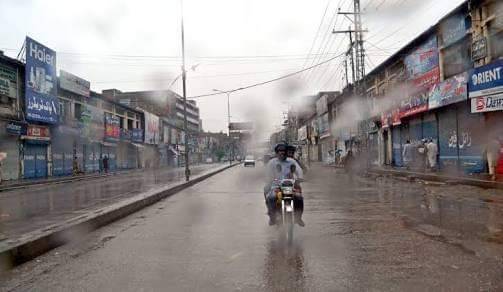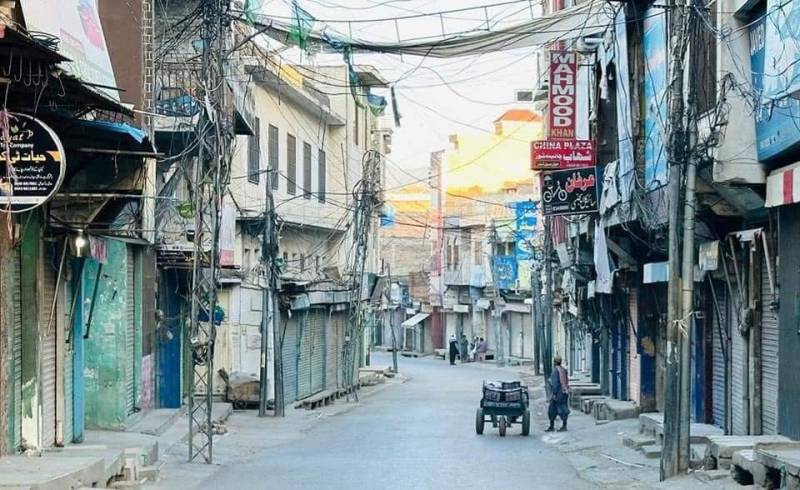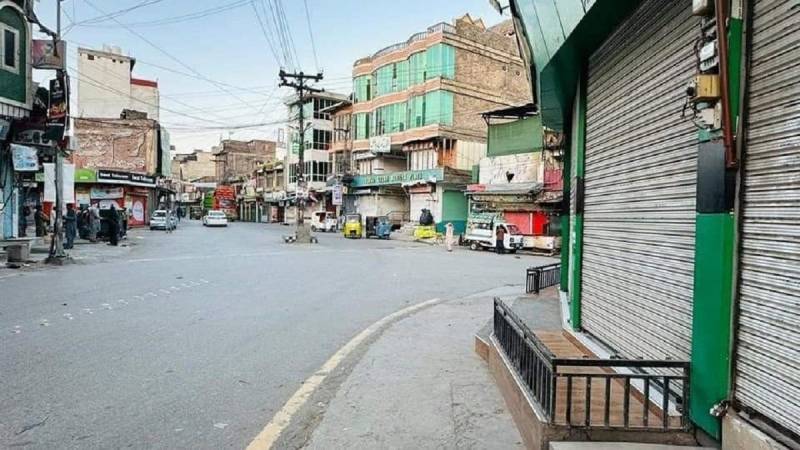Traders across the Malakand Division on Monday shut down markets, lawyers boycotted courts, and teachers were absent from schools as the region went on strike against the tax measures recently imposed by the government.
The strike came as the traders' union of Malakand announced a complete boycott of taxes in all nine districts of the division, including Swat, Buner, Malakand, Bajaur, Shangla, Lower Dir, Upper Dir, Upper Chitral, and Lower Chitral.
Abdul Rahim, the president of the Malakand Traders' Union, told The Friday Times, "We have closed the markets in the first phase, and if the government does not withdraw the tax, we will take to the streets in the second phase."
"Private schools organisation has also supported the strike, and all private schools are closed in Swat," he said, adding that the High Court Bar Association of Malakand Division has also announced its support for the strike.
Rahim stated, "The government wants to impose an economic crisis on Malakand by enforcing taxes instead of providing relief."
"No kind of tax will be accepted in Malakand Division. The enforcement of taxes will push the poor people into poverty."
He continued that the division has been economically affected, first by terrorism and then by natural disasters.
"The government should come to its senses, instead of cultivating enmity with the people, provide relief and immediately withdraw the tax decision."
Rahat Ali Khan, the president of the Swat Chamber of Commerce, said, "There are no industries here, people are unemployed, and terrorism and floods have destroyed our businesses. The government should first provide jobs to the people and then impose taxes."
Social activist Dr Khalid Mahmood said, "If the imposition of tax is not withdrawn, the people of Malakand Division will take to the streets, and if any damage occurs, the government will be responsible."

Habib Ali, a local businessman, told The Friday Times: "We are already suffering from poverty, terrorism, and natural disasters. Imposing taxes on us is like rubbing salt in our wounds."
"The government should provide us with relief and compensation for our losses rather than burdening us with taxes. We cannot afford to pay taxes; our businesses are already suffering due to the economic crisis."
Ali further lamented that the government appears oblivious to their suffering.
"They only care about filling their coffers. We will not accept any kind of tax. We will protest and take to the streets if necessary," he said, adding that they already pay alleged taxes in the form of bribes to corrupt officials.
"Why should we pay more? The government should first provide security, education, and healthcare, then ask us for taxes."
According to Article 247 of the Constitution, the province of Khyber Pakhtunkhwa—particularly areas that fell under the Provincially Administered Tribal Areas (PATA) and the erstwhile federally administered tribal areas (FATA)—was granted special status upon its ascension to Pakistan, and these areas were exempted from taxes.

However, in May 2018, following the promulgation of the 25th Amendment to the Constitution, the special status of FATA and PATA was abolished. However, the government exempted these areas from taxes for five years. The previous government had extended this exemption for an additional year in its last budget, which expires on June 30, 2024.




